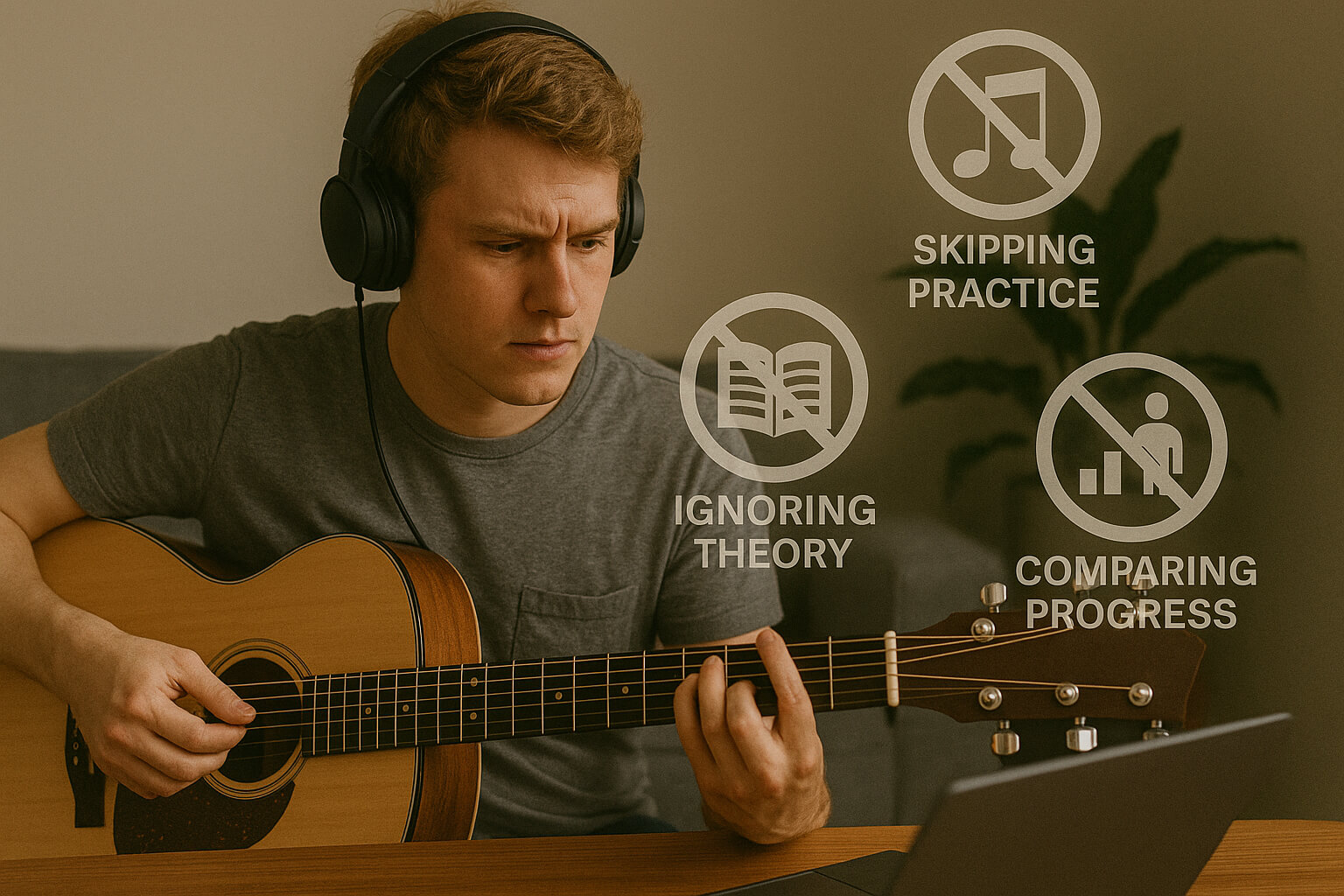5 Common Mistakes New Musicians Should Avoid

Starting your music journey is exciting — but it’s easy to fall into habits that slow your progress or crush motivation. The good news? These early pitfalls are totally avoidable once you know what to look for.
Here are 5 common mistakes new musicians make — plus how to overcome them and stay on track.
1. Neglecting Consistent Practice
- What Happens:
- You practice in bursts — maybe once this week, three times next week, then not at all.
- Why It Hurts:
- Without consistency, you lose momentum, build bad habits, and forget what you’ve already learned. It’s like trying to learn a language by only studying on weekends.
- The Fix:
- Practice just 15–30 minutes a day.
- Use a simple practice routine: warm-up → learn something new → play for fun.
- Track your progress — even a quick checklist or journal entry helps.
- Progress doesn’t come from practicing a lot once in a while — it comes from practicing a little, often.
2. Rushing Through the Fundamentals
- What Happens:
- You skip the boring stuff and go straight to flashy solos or complicated pieces.
- Why It Hurts:
- Without solid basics like rhythm, scales, and posture, more complex music feels frustrating and out of reach. You might even hurt your hands with bad technique.
- The Fix:
- Treat the basics like building blocks.
- Add scales, chord shapes, rhythm drills, or sight-reading to your daily practice.
- Learn songs that gradually add new techniques — don’t jump five levels ahead.
- Mastering the basics makes everything else feel easier — and more fun.
3. Avoiding Music Theory Because It “Seems Boring”
- What Happens:
- You rely on tabs or copying others, but don’t understand why the music works.
- Why It Hurts:
- Music theory gives you tools to write songs, improvise, and jam with others. Without it, you hit a creative ceiling fast.
- The Fix:
- Start small — learn one concept at a time, like what a major scale is or how chords are built.
- Use visual, interactive tools like musictheory.net or Teoria.
- Apply theory to real music — try identifying the chord progression in your favorite song.
- Theory isn’t rules — it’s your musical cheat sheet.
4. Comparing Yourself to Others
- What Happens:
- You scroll past a 12-year-old shredding on YouTube and wonder why you even bother.
- Why It Hurts:
- Constant comparison leads to self-doubt, frustration, and even burnout. It takes the joy out of learning.
- The Fix:
- Focus on your own journey — not someone else’s highlight reel.
- Record yourself weekly to hear real progress.
- Celebrate small wins — cleanly switching chords, nailing a tricky rhythm, or memorizing a song.
- ❤️ You’re not behind — you’re learning. Everyone starts somewhere.
5. Ignoring Ear Training
- What Happens:
- You only rely on visual tools — tabs, notation, diagrams — but can’t recognize melodies or chords by ear.
- Why It Hurts:
- A weak ear makes it harder to improvise, play by ear, or truly “feel” the music. You’ll always need to rely on external tools.
- The Fix:
- Use free ear training apps like Toned Ear or Good Ear.
- Start small: match single notes by ear, then simple melodies.
- Try humming or singing scales before playing them — engage your ear before your fingers.
- Your ears are your best instrument — train them like you train your hands.
Final Thoughts: Mistakes Are Just Part of Learning
Every musician makes mistakes — even professionals. What sets successful learners apart is that they notice, adjust, and keep going.
Build consistency. Respect the basics. Learn theory in small doses. Train your ear. And above all — enjoy the process.
You’re not just learning to play an instrument.
You’re learning to express yourself in a new language.
Suggested Read Next:
